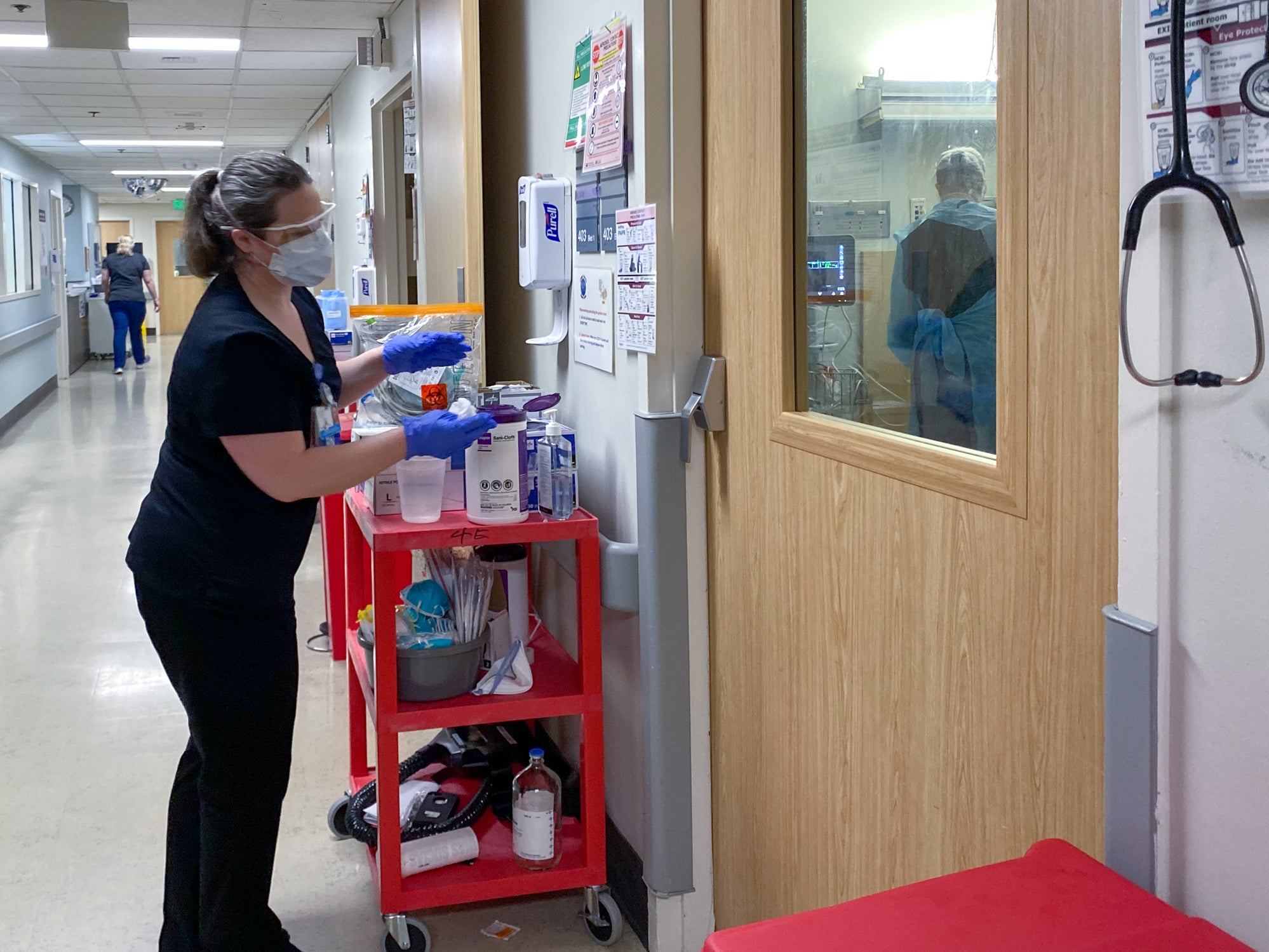Delaware
Delaware responds to shortage of nurses with ‘Tuition Incentive Program’

From Philly and the Pa. suburbs to South Jersey and Delaware, what would you like WHYY News to cover? Let us know!
As the demand for health care services continues to rise, the pervasive nursing shortage presents challenges in every state nationwide. In Delaware, this is evident as nurses manage additional responsibilities or step away from the healthcare profession.
Delaware has 11,490 registered nurses serving the state population of around one million people, according to a 2022 report from the U.S. Bureau of Labor Statistics on Registered Nurses. That equates to about 11 nurses for every 1,000 people, highlighting a substantial workload per nurse.
The demand for nurses is widespread, said Christopher Otto, a registered nurse and the Delaware Nurses Association executive director. The shortages are particularly evident in acute and long-term care settings, where the working conditions can become exhaustingly challenging.
“These are increasingly challenging working environments, more demands are being put on nurses in these environments as other resources are being cut [or] drawn back because of budget constraints,” he said. “Nurses are just exhausted. We also know that nurses in the last several years have made the decision to work part-time or reduced hours, some retiring altogether and leaving the profession.”
Some of those long-term care settings facing nurse shortages are in state-operated facilities within the Department of Health and Social Services and the Department of State. That includes the Delaware Psychiatric Center, the Delaware Hospital for the Chronically Ill, the Delaware Veterans Homes, and the Stockley Center.
“With certified nurse assistant vacancy rates of 40-50% in our state-operated healthcare facilities, it puts additional pressure on licensed and registered nurses in these facilities,” said Claire DeMatteis, Secretary of the Department of Human Resources.
To address this shortage, the state recently launched the ‘Tuition Incentive Program.’
“We are offering this first-ever tuition incentive to attract more state employees to serve as certified nurse assistants,” DeMatteis said. “With this new tuition incentive, along with signing and retention incentives for all types of nurses in our state facilities, we are investing significant state resources for the health and well-being of some of our most vulnerable residents.”